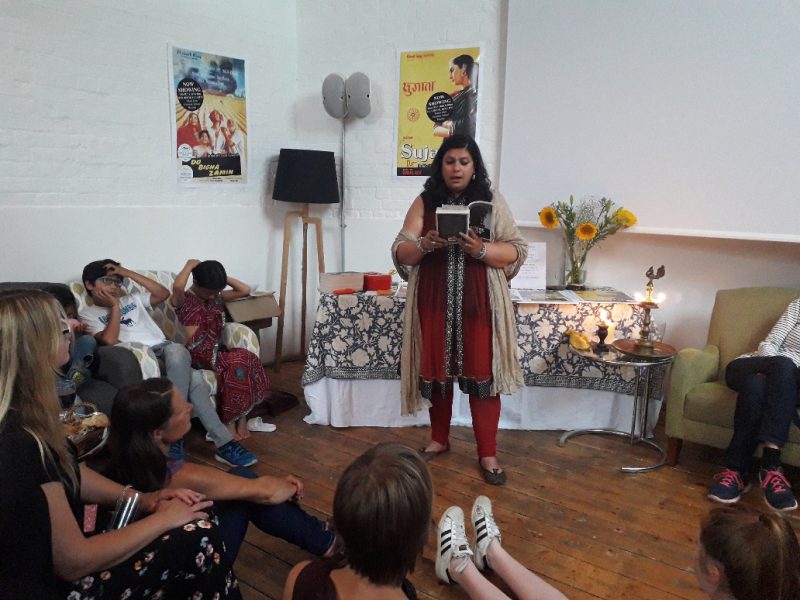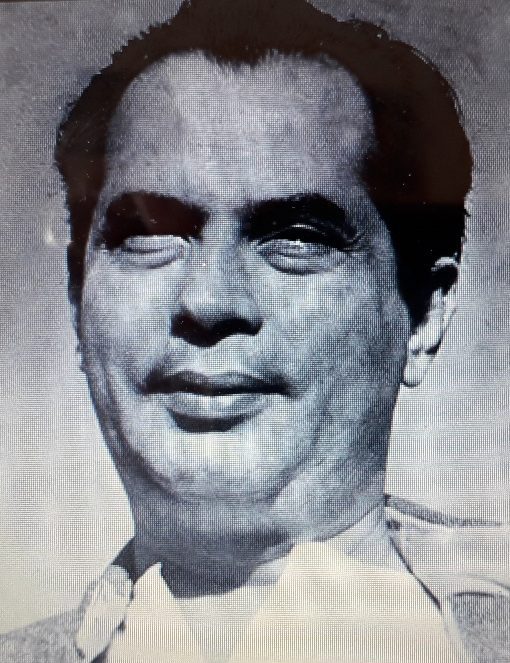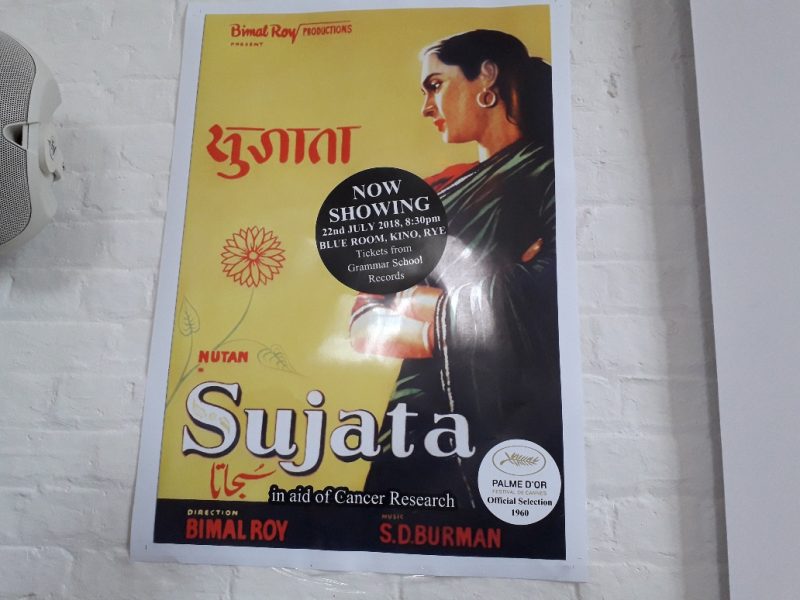Local writer and poet Dr Anwesha Arya marked her grandfather Bima Roy’s 109th birthday anniversary on July 12, with a second of his path-breaking films called Sujata, made in aid of cancer research in 1959 and shown on on Sunday July 22. (The first was shown July 15). It was part of the official selection of the Palme D’Or Festival de Cannes in 1960.

Friends and family of Anwesha met in the Silver room of the Kino, Lion Street and while enjoying a glass of wine and samosas, we were treated to a reading from the book about Bimal, edited by Rinki Roy Bhattacharya and Anwesha. At 8:30pm we were ushered into the Blue Room to see the film Sujata which was an experience of 1950s black and white film making and an education in India’s culture, caste prejudices, kindness and unconditional love.
Dedicated to the depiction of social realism, Bimal chose to shine a light on taboo subjects from 1940 to the 1960s. Globally the issues of the late 1940/50s were difficult to choose for cinema as the audiences were preoccupied by the unfolding chaos of the Second World War but also craved distraction. The film was about old Indian traditions and the different attitudes between the older and younger generations. Bimal was particularly noted for his realistic and socialistic films, making him a voice of the time and an important figure in Hindu cinema. He won several awards including two National Film Awards. Sujata is based on a short story of the same name by writer Subodh Ghosh.

The film explores the issue of caste in India. It is a romance between a young man from a high caste and an orphan who was brought up by a high-caste family but came from a family of untouchables. The wife of the couple who took pity on Sujata when her parents died, even though she was from a low caste, was never quite able to accept her and wanted to marry her off as a young woman to anyone who would have her, an older man. Sujata is prepared to forgo the young man’s love to earn the acceptance of her adopted parents. The wife falls ill and only Sujata’s blood can save her. It is this gift that changes the prejudices of the family and neighbours and the marriage between the young man and Sujata is celebrated. There were some beautiful love songs and the structure of the film was such that we were able to empathise with each character’s anguish and happy moments.
The question at the end of the film, for me, would be of course, how much has culture and prejudice changed as we still read and hear about arranged marriages and caste issues. It was an illuminating evening so thank you, Anwesha Aya, for this insight to your grandfather’s enlightened ideas at a time when it must have been difficult to show social possibilities of equality.
Heidi Foster



